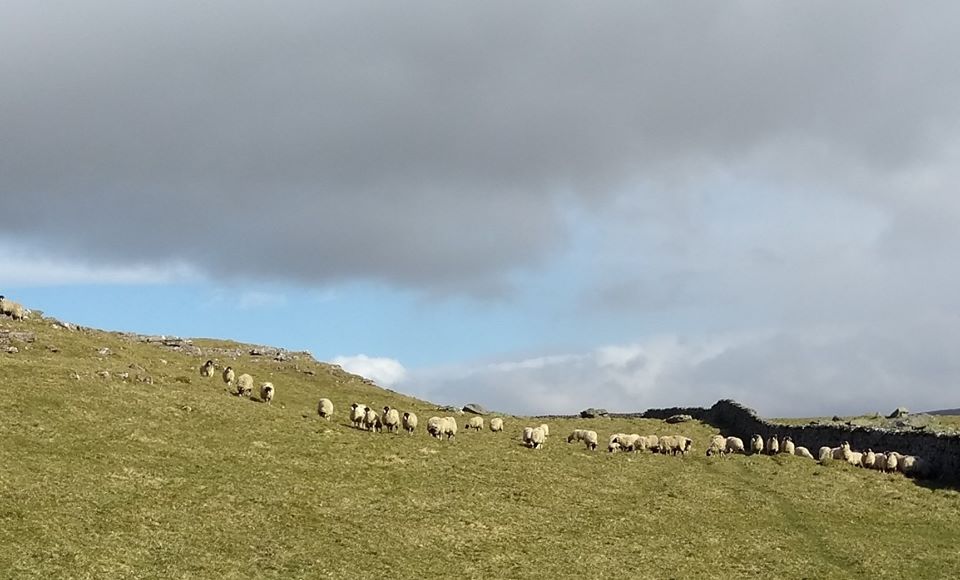 After losing two family members in the pandemic, I had a month-long severe reaction this spring to my second Covid shot. When I resurfaced, feeling practically comatose, I was behind on one Christmas mystery book deadline and a novel (set in 1850s England.) None of my decades-old “get started” techniques worked, which induced a near panic.
After losing two family members in the pandemic, I had a month-long severe reaction this spring to my second Covid shot. When I resurfaced, feeling practically comatose, I was behind on one Christmas mystery book deadline and a novel (set in 1850s England.) None of my decades-old “get started” techniques worked, which induced a near panic.
But one day I heard a podcast. (Details are included at the end.) Did you know that we have 60,000-70,000 thoughts per day? Roughly 95% of the thoughts are repetitive and unconscious. Only 5% of our daily thoughts are conscious and new. The negative ones, both conscious and unconscious, keep us stuck.
“Be transformed by the renewal of your mind,” the Bible urges. To do that, we need to first notice the conscious negative thoughts that keep us stuck. (Mine included “I’m too old for this.” “There’s not enough time.” “I’m too tired to even start.”) Then you grab a pencil and paper and ask yourself the following questions.
Unstuck with Five Magical Questions
- If I feel overloaded, what would it take for this task to be easy? What would have to change for this situation to be simplified? I asked this when I felt overwhelmed, whether I needed to outline my cozy mystery or put away Christmas decorations. Sometimes the answer was to cut the goal into tiny pieces to make it easy. Or I deleted the task, or delegated it, or postponed it because it wasn’t critical. Sometimes I rearranged my schedule to eliminate overload. (I felt every bit as overloaded as this sheep!)

- What is an improvement I’m willing to make? The smaller, the better, if you want to get moving quickly. Maybe I can’t write for an hour, but I’m willing to write ten minutes. I can’t walk three miles today, but I’m willing to walk around the block. I don’t want to stick to my diet today, but I’m willing to cut this candy bar in half. Small steps lead to larger ones.
- What perspective would I need in order to feel different? I use this question when I want to change my fearful, doubtful, or pessimistic mood. My change in perspective often includes a particular Bible verse that speaks to my need. Then I can look at my situation from a better point of view instead of my own limited one.
- In this particular situation, where do I need to be a little more patient, and where do I need to push a little harder? I ask the question, sit quietly, and listen. You’ll know if you need to rest more and be patient with healing, or if you actually are loafing and need to push yourself a bit.
- What is the difference between a true solution and a distraction? When I’m tired or discouraged, what actually renews my energy, a nap or a pint of ice cream? When I’m behind on a deadline and fighting panic, is watching a British movie a solution, or is it a distraction? The real self-care task isn’t always the most appealing choice. But it will be a true solution.
Questions for Every Season of Your Life
These powerful questions turned out to be so helpful that I taped the list in several places: beside my computer, in my daily planner, and in my prayer journal. They help me every day—not just in my writing, but in my food choices, exercise, home care, and when my grandkids are here.
Questions are a great way to use the 5% of our thoughts we have control over! Bring God into the process. Then the answers you receive will fit your personality, goals, and season in life.
More Help to Get Unstuck
- Find Your Focus: Stick to the ONE Thing
- Procrastination is a Symptom, Not the Problem
- Tiny Changes, Remarkable Results from Atomic Habits
(Taken in part from “Ten Questions that Change Everything” by Primal Potential podcaster, Elizabeth Benton; my post was first published on the National ACFW blog.)
 In the fall of 2019 I spent several weeks
In the fall of 2019 I spent several weeks  My mystery writer friend runs daily in the
My mystery writer friend runs daily in the 
